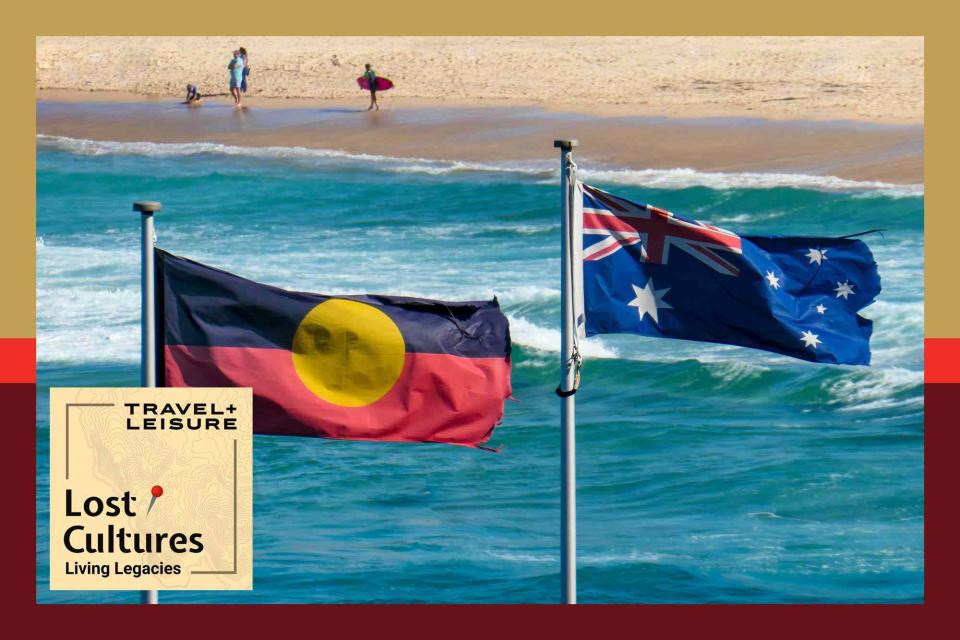Exploring What It Means to Be an Aboriginal Australian Today
"You have ancestors watching you, looking after you. Mother Earth will give us everything we need to sustain life. We just need to listen."

SCM Jeans/Getty Images
Every Wednesday on the Lost Cultures: Living Legacies podcast, host Alisha Prakash, Travel + Leisure's associate editorial director, explores a unique cultural identity around the world and shares how you can learn more about it on your travels, too.
The Aboriginal and Torres Strait Islander peoples of Australia are no great mystery. They've lived on this island nation for many millennia. We know they've existed all that time through storytelling, art, and song. But where we perhaps lose focus is in more relatively recent history, when these indigenous people were nearly wiped off their ancestral island through systematic colonization, which has blurred the common understanding of what it means to be "Aboriginal" today.
"I think a lot of people, internationally – what they don't understand about particularly Aboriginal people and because the way indigenous people are classified in America on the blood quantum, it's very different," Laura McBride, director, First Nations at the Australian Museum, said. "So Aboriginality in this country is a way of being, thinking, and knowing. It's not only race, it's religion as well. So it's how you grow up. I was born Aboriginal, and read as an Aboriginal woman, I'm a proud Aboriginal woman, so that's my primary identity. When it comes to traditions and customs, at the time my father was born, people weren't necessarily allowed to speak their languages or undertake any of what would be seen as our cultures at the time."
Even today, Rob Hyatt, the cultural education and visitor experience manager at the Koorie Heritage Trust in Melbourne, explained, the First Nations people in Australia are still living without a basic treaty.
"With colonization, we were first colonized under the term of 'terra nullius,' where 'terra nullius' basically meant an empty continent or a land without people … basically, Australia was seen as empty and there to take," Hyatt explained. "And so, that's why Australia today still is one of the only commonwealth nations in the world that does not have a treaty with its First Nations people. We're still in the process of negotiating a treaty."
Through it all, Aboriginal and Torrey Straight Peoples have not only been able to maintain their distinct cultural heritages, but are now beginning to find the recognition they so richly deserve.
"You're never alone when you walk through the bush," Tim Selwyn, the founder and director of Girri Girra, a company that offers eco-friendly tours and experiences on New South Wales' Central Coast, said. "You have ancestors watching you, looking after you. Mother Earth will give us everything we need to sustain life. We just need to listen."
To learn more about Aboriginal communities, listen to Prakash's conversation with guests Laura McBride, Tim Selwyn, and Rob Hyatt in Lost Cultures: Living Legacies, available on Apple Podcasts, Spotify, Amazon Music, and everywhere podcasts are available.
Editor's Note: Please be mindful that this transcript does not go through our standard editorial process and may contain inaccuracies and grammatical errors.
For more Travel & Leisure news, make sure to sign up for our newsletter!
Read the original article on Travel & Leisure.

